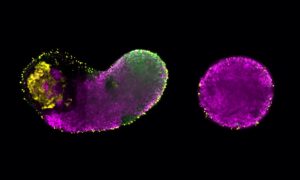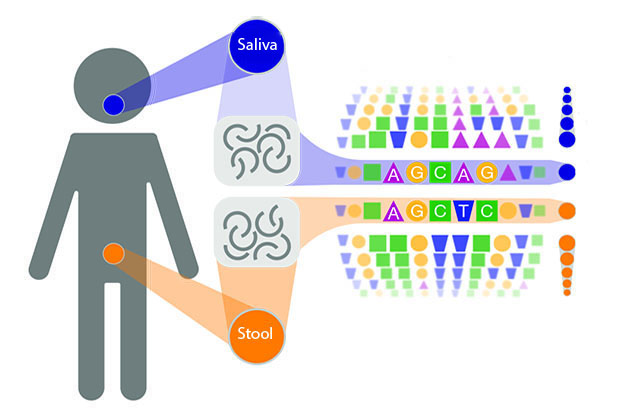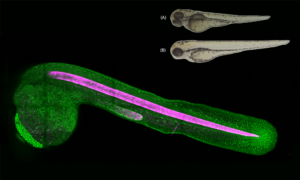
Many gut microbes may originate in the mouth
Even in healthy people, many oral microbes traverse the gastrointestinal tract and colonise the gut

Scientists from EMBL’s Bork group, in collaboration with the Zeller team and the Luxembourg Centre for Systems Biomedicine, have identified many shared microbial strains in saliva and stool samples from several hundred people across three continents. Their research, published in eLife, shows that the barrier between oral and gut microbiomes is weaker than expected and highlights evidence of oral-gut transmission of several microbes thought to play direct roles in the progression of colorectal cancer.
The mouth and the gut are abundantly colonised by microbes and linked by a constant flow of food and saliva. Despite this, they host distinctly different microbiomes. The acidic stomach and antimicrobial small intestine form an oral-gut barrier which was thought to kill off the vast majority of oral microbes before they reached the gut.
Oral-gut transmission occurs when enough cells of an oral species survive the population bottleneck of the oral-gut barrier to establish a new colony inside the gut. This barrier failure has previously been considered rare and – when it does happen – associated with various diseases.
However, the scientists found that, although patients suffering from colorectal cancer or rheumatoid arthritis did indeed show higher levels, oral-gut transmission is actually very common in healthy people.
- On average, 75% of the microbial cells in an individual’s mouth belonged to species which were traced from mouth to gut in at least one individual in the study.
- On average, 35% of the microbial cells in an individual’s mouth were traced from mouth to gut in that same individual.
These findings establish the mouth as a potential source of gut microbial species and demonstrate that microbes linked to colorectal cancer may originate from within the body rather than the environment. Scientists must now assess whether interventions in the oral microbial community could impact the gut microbiome and its effects on human health.
Related links
- Research in the Bork group
- Research in the Zeller team
- Luxembourg Centre for Systems Biomedicine
- EMBO Practical Course: 'Microbial Metagenomics: A 360º Approach'
- EMBL Course: 'Metagenomics Bioinformatics'
- Microbiomes: Our humble overlords
- More than 100 new gut bacteria discovered in human microbiome


